Why Argue?
screening me-me's
This episode is chockfull of the subversive art of the argument: the meme. Thanks to Tonika of Visceral Adventures for the End of Year Memelanche and to Conspi-Rat for always having a meme or twelve up his furry sleeve.
An argument, as I define it, is a productive disagreement. All learning starts with a disagreement in the mind: a new fact is introduced or new logic, and you choose to shift your mind to include it or you enclose it within the constraints of other facts and logic that contradict it.
There’s an internal argument that goes on between the existing organization of thoughts and the thought that disrupts that organization. In a healthy mind, learning happens no matter which side ‘wins’ because the system of thinking expands to fit the new idea within it or counters it with its own logical consistency. It’s never a threat.
A healthy argument between people simply takes this outside the mind and into the dynamic of relationship. Each person is presenting a hypothesis that makes sense, to them, of the sphere of known facts. In any disagreement between those hypotheses, one person’s sphere of relevant facts is larger, their facts are more factual, or their logic is more logical—perhaps all three. To agree to disagree or to compromise so ‘both win’ creates two half-truths instead of one tested bigger truth.
And clearly, any time a group claims the truth, like right vs. left, it’s another trick. The fastest way to agreement can be summed up in four words: “You and me, babe.” We’re smarter and better than them. The fastest way to an argument is some version of “No, we’re not.” From a competitive mindset, this is seen as trying to one-up the other person by claiming moral superiority, i.e. “I’m better than you because you see yourself as better than other people.” I’ve yet to figure out a way around this.
Rather than arguing for our final conclusion, a true argument takes the point of disagreement down to its prime number, its lowest common denominator. In arborist terms, it’s where the division starts—the twig, the branch, the limb, the graft onto the trunk, or a whole different root. The word radical means to go to the root. You may be arguing Mutsus vs. Pippens or apples vs. oranges. Be clear about where you disagree.
The school-to-mindprison pipeline has trained us to capitulate—a word that means cut off the head and hand it over—when we’re looking to please someone in authority over us. We might change our mind for people who are credentialed, famous, clever, published or well-respected. Or if they are politicians on our side or religious leaders. These are one-way communications seen as teacher to student.
We don’t have good role models for people changing their minds in dialogue with an equal. To try to persuade someone is seen as manipulative and rude. It can feel like someone is trying to assert their authority over us. In truth, however, the person you can learn from is the one who feels they have something to learn from you. Learning is always reciprocal. We are meaning-making machines. The capacity to make sense of our experience is innately human. I think, therefore I am.
The person who actually ‘wins’ an argument is the one who changes their mind, because they’ve expanded their thought process to make sense of a larger sphere of factier facts. That person has grown their neural network, cast a wider net, found a more efficient way to navigate the maze. The result of ‘losing’ an argument should be joy, if the right answer is worth more than the ego boost of being right.
I don’t judge people as good or bad, I judge ideas as closer or further from the truth. The only ideas I critique are the ones that judge other people, the ones not in the room. This one disagreement, that we’re no better than anyone else, keeps me in nearly constant conflict. Why is that?
Our inclusion in the group is based on our unspoken agreement about our common superiority to those outside the group. We must agree that those others are excluded and never quote them, associate with them, or talk with them except to argue. On the other hand, it’s considered rude to challenge the ideas of those on our side, especially to defend those who aren’t.
Arguing with someone hostile can be useful because the more reasonable you are, the more they make your case for you. Of course, this is only useful if you have an audience or a copy of the argument you can later publicize.
I’ve found that my secret weapon is quoting someone verbatim outside of their own echo chamber. Sometimes it requires no commentary at all. Julius Skoolafish calls this ‘A front loading washing machine tries to argue with Tereza Coraggio.’ Logic is the wrench you toss in while it’s going in circles that makes it spin out of control:
The best arguments, however, are with people for whom you have boundless affection and who like you in return. Arguing should be fun! You’re putting your rooster in the ring with boxing gloves on. It’s a jocular cockfight. There’s no need to draw blood.
But you do want to keep score, perhaps a musical one. There’s a place you want to go and the argument is the map to lead you there. The question is a quest, and there’s no quest that isn’t better with company. Wise and witty and agreeably disagree-able company.
The hypothesis I’m representing is that all people are intrinsically good and, when they behave badly, systems and stories are to blame. My question is how false stories and false systems have tricked good people into doing bad things. The root of all false stories is that there are good and bad people, and we have to make sure the good people are in charge of the bad. The root of all false systems is power over others. Without the story of superiority, we would never tolerate the system of dominance. Finding the origins of these systems and stories is my quest.
Logic is bringing together two mutually exclusive thoughts so that one of them has to go. Cognitive dissonance is keeping two incompatible thoughts separate in the mind, compartmentalized, so they can coexist. Contradiction is different than paradox. In paradox, two thoughts are juxtaposed that seem opposite on the surface but reveal a deeper synchronicity, like the way that jazz chords clash but in a pleasing dissonance that goes beyond simple harmony or the way that a ‘slant-rhyme’ is more satisfying and sticks in your brain longer than a trite rhyme. See how that works?
What triggers anger is when someone or something makes these thoughts with opposing charges come together and spark. However, that same spark is what causes us to laugh. We get set up with one expectation and something else pulls the rug out from under it. The meme is the naughty mistress of this sleight of hand. The best memes aren’t mean, they have a good chuckle at ourselves and maybe where we’ve been. We recognize ourselves in another form.
The opposite of an ego reaction is laughter. Nothing is more subversive than the meme because it hops, skips and jumps right over those ego boundaries and puts the contradiction square in your face like a whipped cream pie. You can get mad, or you can lick your lips.
Belief is always a cloak for cognitive dissonance. It allows two contradictory thoughts to coexist peacefully and justifies the attack of anyone who threatens to bring them together with logic. Belief disguises itself as humility before a greater authority, whether that’s human or divine. Yet the authority is always one that gives special status to the believer, makes them superior to unbelievers. The prime number of all contradiction is superiority vs. equality. There’s no way to be on both sides of that bridge too far, that’s really the first bridge and also the last.
To be morally better than someone—anyone!—is illogical. Even if that’s Klaus Schwab or Bill Gates or Hitler. My Hitler Journey started as a thought experiment, a spiritual exercise in assuming everyone does things for a reason, same as me. There’s no one I could have questioned who would more amply prove my point. The second world war was caused by propaganda that divided people into good vs. evil, at a time when Germany had proven that the bankers were making us all poor and it didn’t have to be that way. The same technique works today.
The trick of all propaganda is playing on our superiority. If you refuse to believe in your own superiority, you’ll be able to see through it like a distorted mirror. It reflects back a twisted version of yourself as another person, who it wants you to reject. But if you peer into it, seeing past the surface reflection, you can see the figures manipulating you and why. And then if you squint, and see past that, you can see the meaning and purpose that underlies every action, using it for all of our greatest benefit.
Socio-spirituality is taking a hard look at the reality IN the world while questioning the reality OF the world. To do the first without the second will make you a cynic. To do the second without the first will make you schizophrenic.
Our reluctance to challenge the ideas of our friends enables friendship to be weaponized. Sometimes this is intentional, as a means of controlling the opposition. Other times it’s human. I find that I need to hold friendship lightly and be willing for people to take a break without taking it personally. When others take offense it doesn’t necessarily mean I’ve given offense. And sometimes they come back.
In closing, it’s only in relationship where the productive disagreements happen, where a new self beckons from the other side of the divide. Or maybe the other side of the divine. And that relationship may be within you. As a friend says, “When I feel down, I clean the house because it can’t make me feel worse and future me will thank me.”
And just for fun and so I can make a clean sweep of my desktop, here are two more.
This is for Isaac Middle, resident Substack wombat, as he launches into his on-road journey for the second time. Thanks to the fates and an emu crossing the road, without motive, for sending him back to grace us with drumrolls and March madness readings. We’re all now better prepared to leap the chasm.
I define socio-spirituality as looking with open-eyes at the reality in the world and questioning with an open mind the reality of the world. I distinguish its purpose, not as giving comfort, but giving the power to change the world. Its one dogma is that I'm no better than anyone else, followed by four beliefs and one suspicion. How these relate to small scale sovereignty is the topic of my book, How to Dismantle an Empire.
How do we deflect the Dark Arts of word spells? I spell out the steps of methodical thinking—state your purpose, own your dogma, put your rooster in the ring. I define four paradigms in socio-spirituality that I uniquely represent and why we should be agreeably disagreeable.





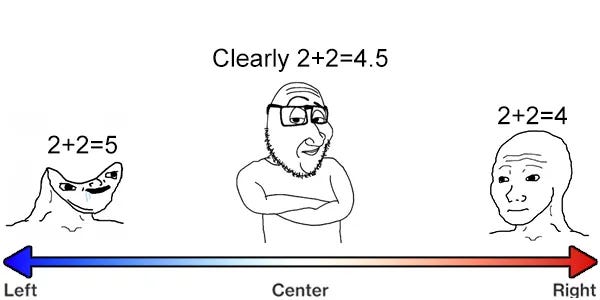
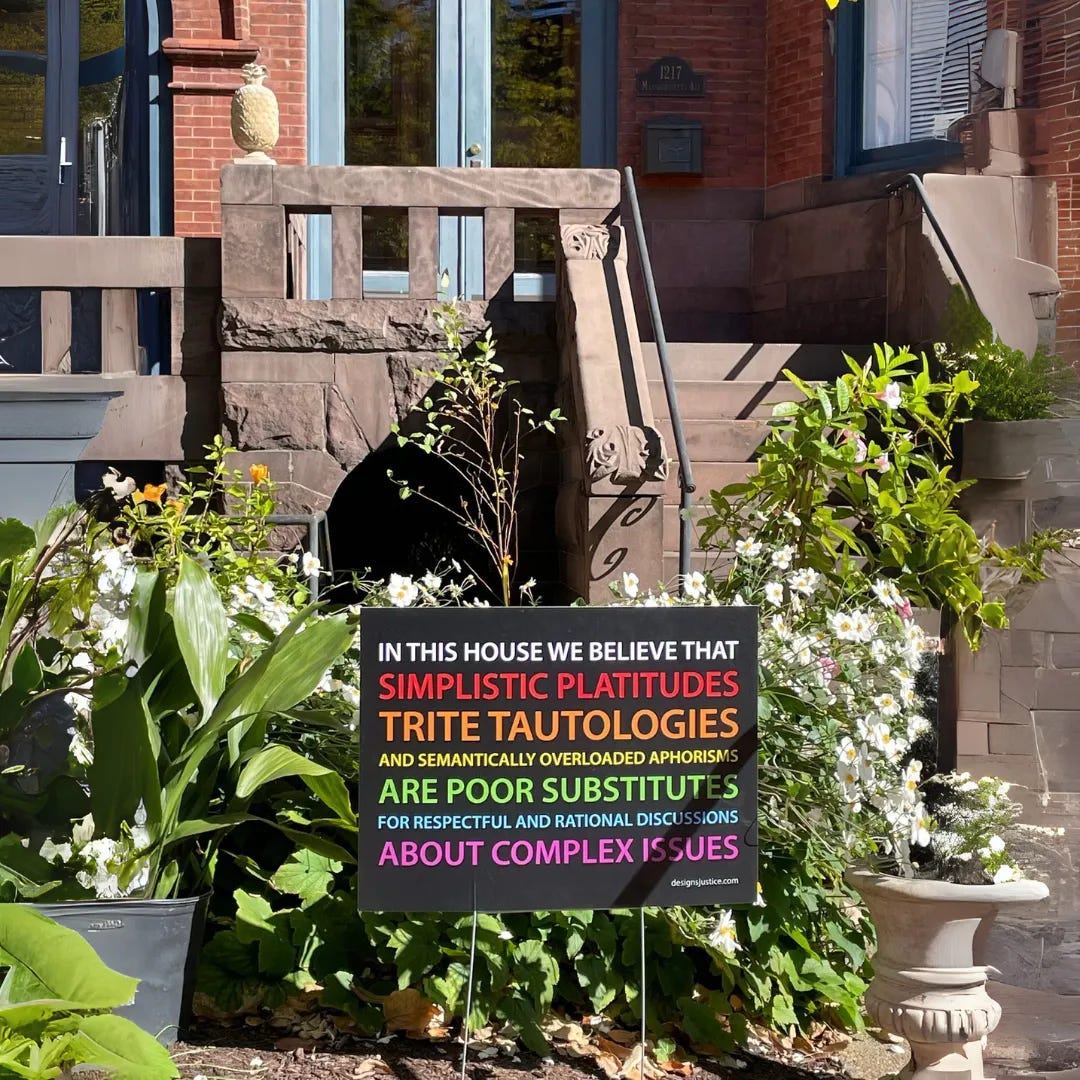

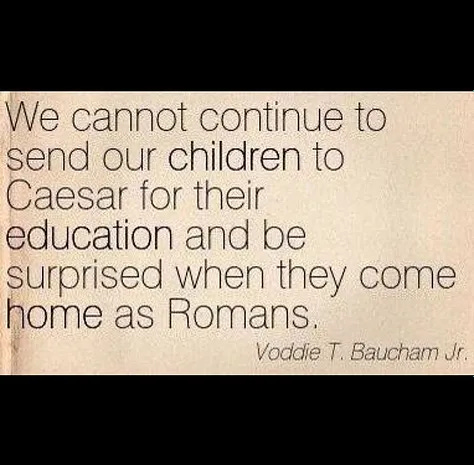

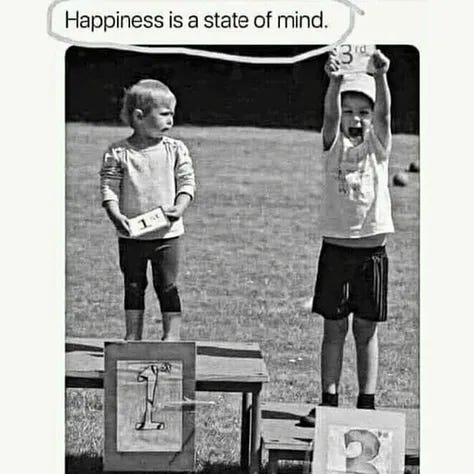

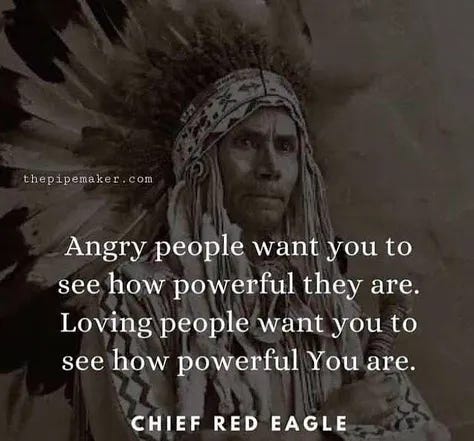
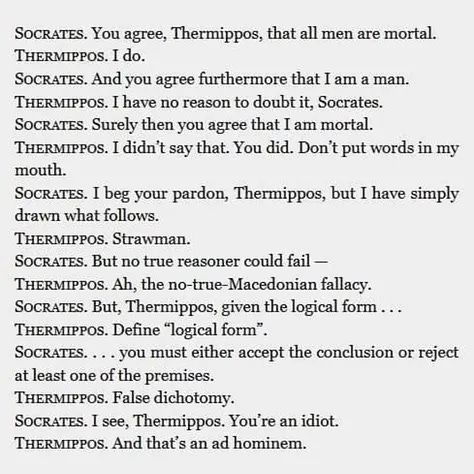


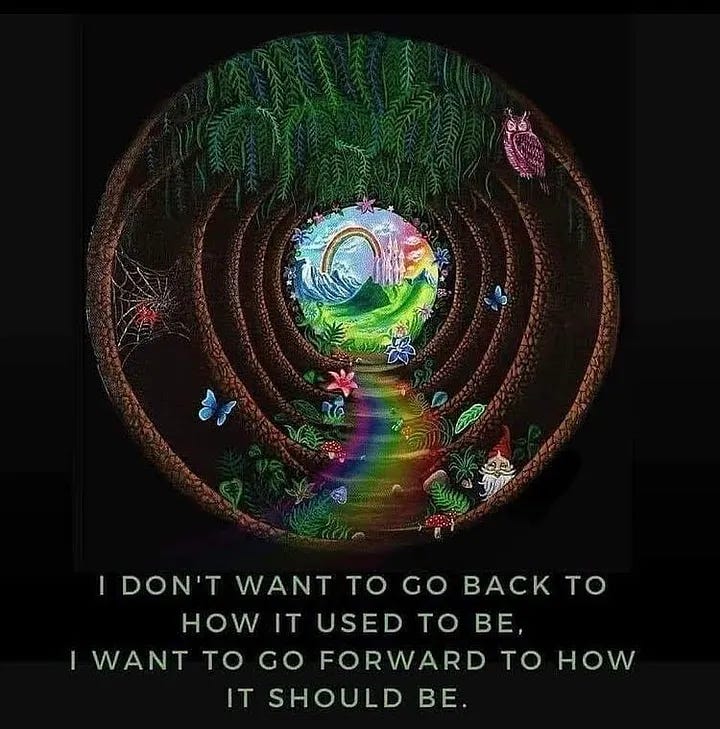



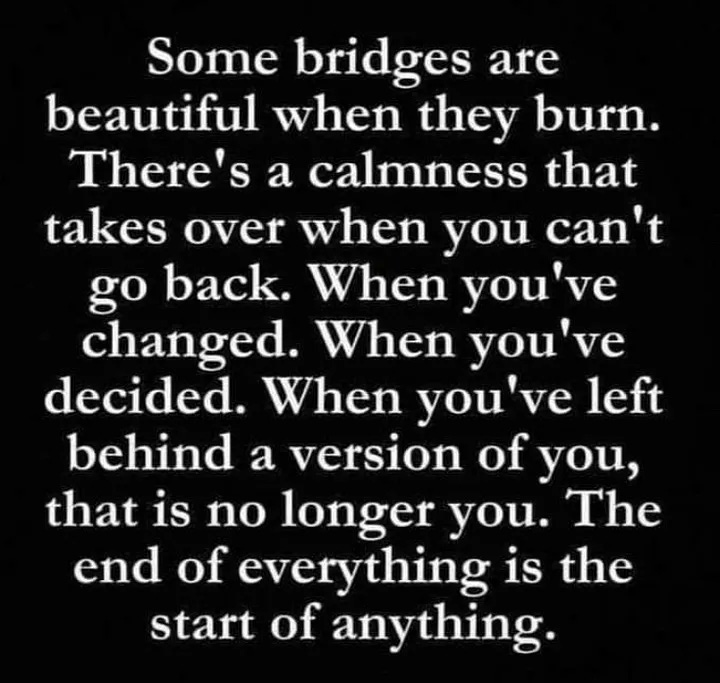

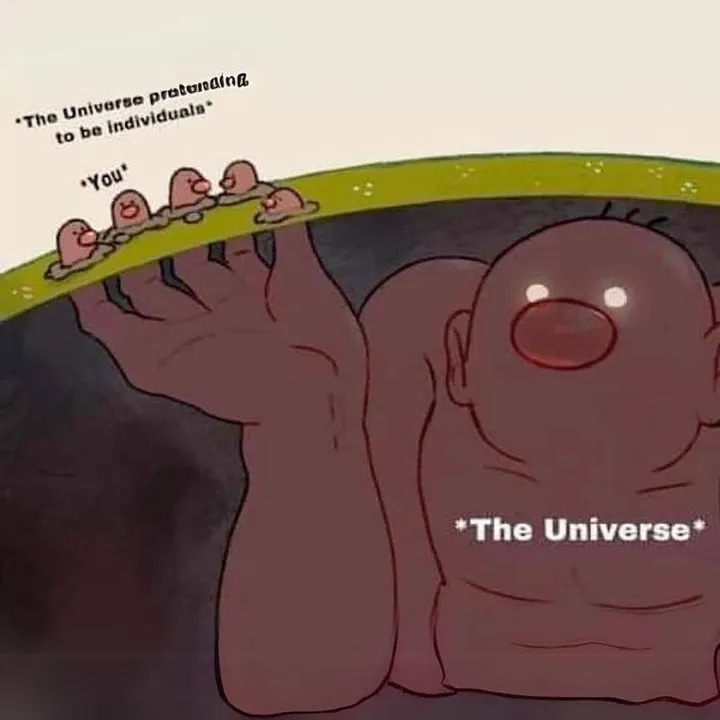
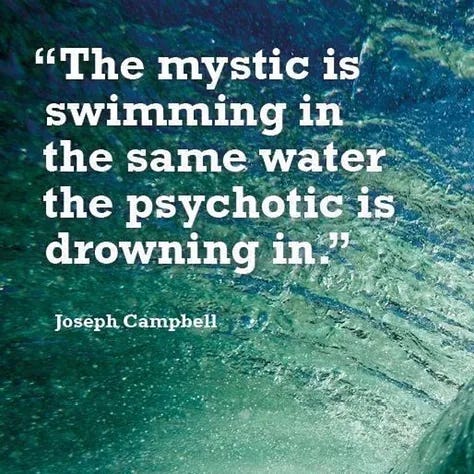




Quote: “The root of all false stories is that there are good and bad people, and we have to make sure the good people are in charge of the bad.”
Do we live in a system that makes sure the bad people are in charge of the good, or is it the system that makes people at the top bad?
Quote: "Our reluctance to challenge the ideas of our friends enables friendship to be weaponized.”
Reminds me of when Dan gave a presentation on AI over a beer night at my place; when he finished, told him you get 20/100 coz I am generous. lol lol
Laughs:
‘A front loading washing machine tries to argue with Tereza Coraggio.’
Pic: That’s completely ridiculous – You’re right
Pic: When you forget to drink your morning coffee
Absolutely love you Tereza, N, xo 💕👏🏾👏🏾👏🏾 (went the extra mile to copy my comment from YTB ‘cos this one, especially, deserved it to be heard twice). ✨